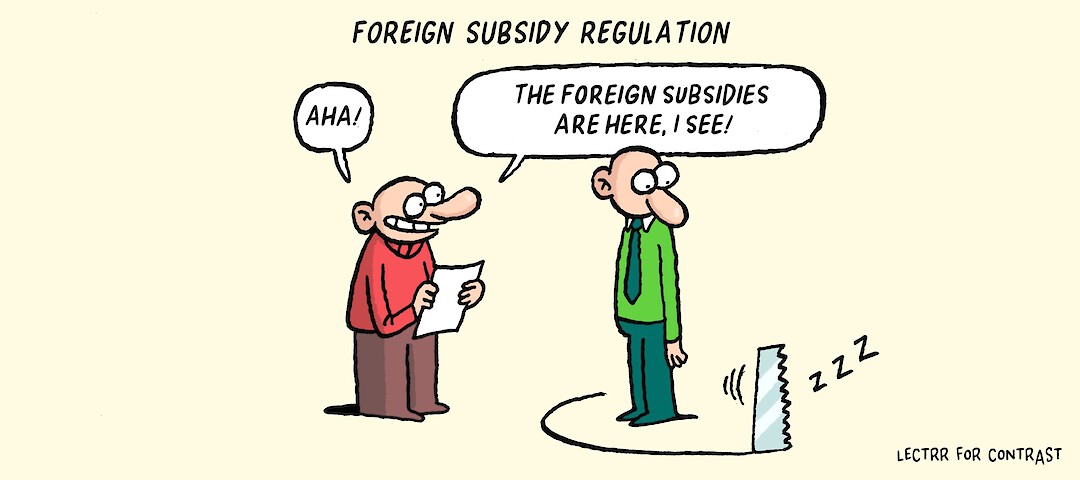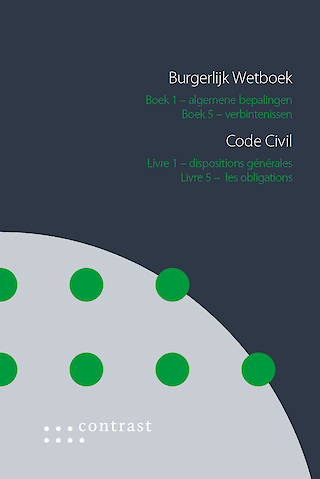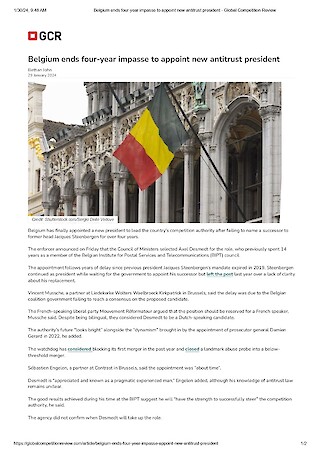In the Picture

Foreign subsidies regulation: further levelling the playing field on the internal market
October 2022Imagine...
You are the head of a company that makes high-end wooden chess sets. One day, you realise that you are getting fewer and fewer orders. After a bit of investigating, you find out that this is because an Indian company is selling chess sets that are like yours in all aspects but cost half the price. You also find out that this Indian company can do this because it has been receiving large subsidies from the Indian government for years.
You don’t see how you could sell your product any cheaper while maintaining a viable business. You consult your legal counsel to see if there is anything that can be done to tackle this unfair competition. She informs you that there is no immediate legal means to address this situation, but that this will change as of 2023.
A brief clarification.
EU Member States can only grant companies State aid in particular circumstances and under specific conditions. Countries outside of the EU are not necessarily under such constraints. They are free to aid companies however they wish, in line with their national law and international obligations they may have. This may undermine the level playing field within the internal market and has prompted the EU institutions to address these so-called foreign subsidies.
In June of this year, the Council and Parliament reached an agreement on a regulation on foreign subsidies which distort the internal market, which is expected to be adopted later this year.
But what is a “foreign subsidy”? The criteria for a “foreign subsidy” are almost identical to those for State aid measures under EU law. A “foreign subsidy” is any direct or indirect financial contribution by a third country which confers a benefit to a specific company operating on the EU internal market. The term “financial contribution” is to be understood broadly and includes the foregoing of revenue and the provision of goods or services on terms which do not comply with normal market conditions. The draft regulation does contain a de minimis rule whereby a subsidy of less than EUR 4 million over 3 years is considered unlikely to distort the internal market
The draft regulation grants investigative powers to the Commission which include requests for information and inspections on the basis of which the Commission can investigate the existence of a “foreign subsidy”. If the Commission were to find that a “foreign subsidy” distorts the EU internal market, it would have the power to impose far-reaching commitments, interim and redressive measures on the relevant companies to remedy this distortion. In our example this could mean that the Indian company operating on the internal market could be compelled to reduce its market presence, including by having to temporarily restrict its commercial activities.
The draft regulation also imposes new obligations on companies and public authorities.
The first novelty concerns merger control. Companies having benefited from foreign subsidies involved in a concentration would be required to notify the concentration to the European Commission if specific turnover thresholds are met and the total “foreign subsidies” involved in the transaction exceed EUR 50 million over the previous 3 financial years. The Commission could prohibit the concentration if an in-depth investigation reveals that the “foreign subsidies” distort the internal market.
The second novelty concerns public procurement. Companies having benefited from foreign subsidies participating in a public procurement procedure with a value equal to or greater than EUR 250 million would be required to notify the contracting authority of possible “foreign subsidies” exceeding EUR 4 million over the previous 3 financial years. The contracting authority would then transmit this notification to the Commission which could decide, after an in-depth investigation, to prohibit the awarding of the contract to the company concerned unless the company makes commitments to eliminate the market distortion caused by the “foreign subsidies”.
The draft regulation also enables the Commission to impose fines and periodic penalty payments on companies which refuse to supply information when they are required to or supply false, misleading or incomplete information or fail to comply with a decision ordering interim measures, redressive measures or commitments.
The regulation would apply to “foreign subsidies” granted in the 5 years prior to its entry into force.
This ambitious legislative initiative by the EU is expected to come into force by mid-2023. It comes hard on the heels of Regulation 2019/452 establishing a framework for the screening of foreign direct investments into the Union and further illustrates the Commission’s will to shield the EU internal market from external distortion.
Concretely.
- The foreign subsidies regulation will impose new obligations on both undertakings and public authorities.
- The new investigation and notification tools introduced by the draft foreign subsidies regulation are clearly inspired by the existing rules concerning State aid and merger control.
- After the regulation’s entry into force, the Commission will have the power to prohibit a concentration because of the existence of foreign subsidies which distort the internal market.
Want to know more?
- You can consult the draft regulation proposal here.
- A draft implementing regulation for the Foreign Subsidies Regulation will be published in December for public consultation.
Please consult our website or contact one of our team members if you have questions or require more information:













